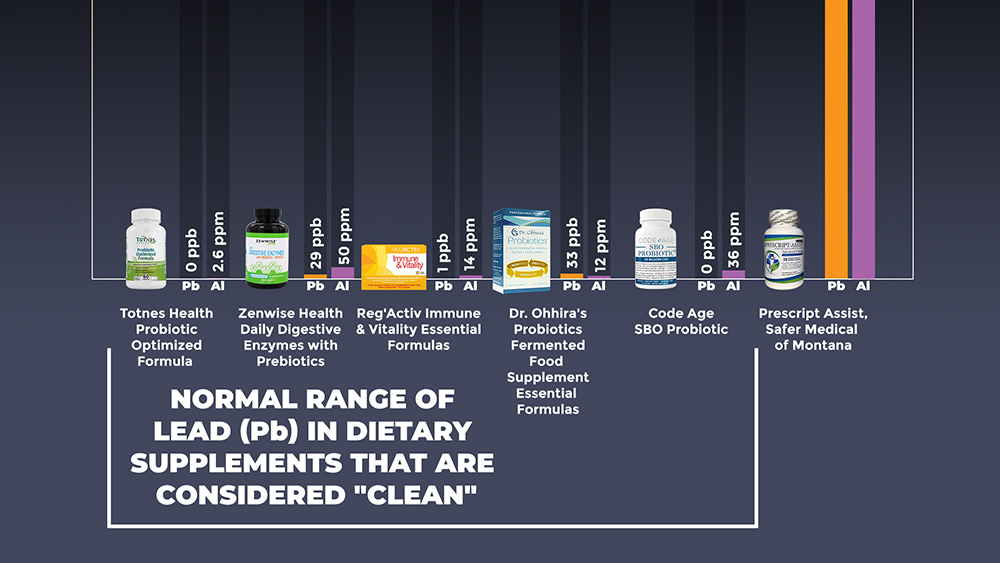Treating an infection with antibiotics during pregnancy could put your child’s mental health at risk
07/28/2019 / By Lance D Johnson

A Swedish observational study found that autism and depression are more prevalent in children if their mothers had an infection during pregnancy and were treated with antibiotics or other drugs during their hospital stay. The study includes nearly 1.8 million children from the Swedish Medical Birth Register who were born between 1973 and 2014. The children were linked to the national inpatient register, a system that documents whether the pregnant mother was treated for an infection in a hospital.
Autism risk spikes if the child’s mother was treated for an infection during pregnancy
In the study, the diagnosis for childhood depression was 24 percent higher if the mother received hospital treatment for an infection during her pregnancy. Most shockingly, the risk of childhood autism went up 79 percent if the mother received hospital treatment for an infection. A child is at greater risk of having mental health issues later in life if their mother was treated for infection at a hospital. The study found that the mental health diagnoses increase in children, even when the actual infectious agent does not reach the fetal brain. So is it the infection causing the damage to children’s brains or is there more to the story?
The study provided no answers as to why an infectious agent would damage fetal brain development. Could an inadequate or weak immune response in the mother trigger inflammatory proteins to change genetic expression in fetal brain cells? Likely so, but the study did not investigate how the hospital’s treatment protocol negatively affected the mother’s immune response and its potential impact on fetal brain development.

|
Discover how to prevent and reverse heart disease (and other cardio related events) with this free ebook: Written by popular Natural News writer Vicki Batt, this book includes everything you need to know about preventing heart disease, reversing hypertension, and nurturing your cardiac health without medication. Learn More. |
The study found that many pregnant women were initially hospitalized with other complications but came down with an infection that was acquired from their hospital stay. Even mild prenatal infections, such as urinary tract infections, were associated with mental illness in children later in life. What do all these infections have in common? They are typically treated with antibiotics, which damage the mother’s microbiome.
Antibiotics, a common prescription for most infections, have been shown to break down vital physiologies of both infectious bacteria and the commensal bacteria that are needed for a healthy immune response. How might antibiotics weaken the microbiome of the mother, lessening nutrient absorption, heightening inflammatory conditions, and destroying the gut’s protective barrier, causing brain-damaging metals and hormone disrupting chemicals to leak through the gut wall and into the bloodstream, where they can circulate more readily to the developing fetus?
Why is this study being used to promote infection and viral susceptibility via flu vaccination?
In a twist of morbid irony, the authors of the study used the study’s observations to encourage pregnant women to submit to infections via the flu vaccine. One of the study’s authors, Verena Sengpiel, Associate Professor of Obstetrics and Gynecology at Sahlgrenska Academy, University of Gothenburg, said, “The results indicate that safeguarding against and preventing infection during pregnancy as far as possible by, for instance, following flu vaccination recommendations, may be called for.” Not only is the flu vaccine an absolute failure year after year, but it also weakens immunity, making pregnant women more susceptible to flu viruses and other infections.
Instead of encouraging the injection of infectious agents such as thimerosal, aluminum, and foreign DNA into the bloodstream, the authors of the study should be more careful, more diligent in investigating how these toxic agents further damage fetal brain development. The authors should also be more diligent and investigate the initial role that the antibiotics and anti-viral drugs play in damaging the mother’s gut microbiome and her subsequent ability to ward off infections. The study should also mention that hospitals are the top source for antibiotic-resistant infections in the first place.
Sources include:
Tagged Under: antibiotic damage, antibiotic resistance, Antibiotics, autism, bacteria, bacterial infections, bad doctors, blood brain barrier, brain health, children's health, depression, fetal development, flu shot propaganda, Flu vaccine, gene regulation, gut wall, Hospitals, immune system, infant health, infections, inflammatory response, Mental Disorders, mental health, microbiome, pregnancy, side effects, superbugs, Thimerosal, toxic chemicals, toxins, vaccination, vaccines, viral infections, virus, women's health


















